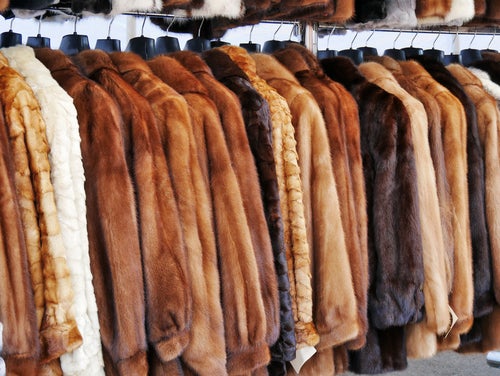
Animal protection organisation Humane Society International explains Italy approved the ban on all fur farming after having discussions about practical, strategic solutions to close and convert fur farms into alternative, humane and sustainable businesses.
The decision made by the Italian Senate still requires final approval by Parliament, but Humane Society International says it is expected to go through, which will make Italy the sixteenth country in Europe to ban fur farming.
The amendment in the Italian budget law states:
“The breeding, breeding in captivity, capturing and killing of minks (Mustela vison or Neovison vison) , foxes (Vulpes vulpes , Vulpes Lagopus or Alopex Lagopus) , raccoon dogs (Nyctereutes procyonoides) are prohibited , of chinchillas (Chinchilla laniger) and animals of any species for the purpose of obtaining fur.”
The ten remaining mink farms will need to close no later than 30 June 2022, with the amendment explaining that farms authorised on the date in force of this law may continue to keep animals already present in the facilities for the period necessary for their disposal without prejudice.
The amendment is also encouraging an ecological conversion of the fur animal farms with a fund covered by the Ministry of Agriculture for a total of EUR3m (U$3.39m) in 2022.

US Tariffs are shifting - will you react or anticipate?
Don’t let policy changes catch you off guard. Stay proactive with real-time data and expert analysis.
By GlobalDataThe amendment states:
The following measures apply:
a) Compensation for each item present at the date of entry into force of this law;
b) A non-repayable grant corresponding to 30% of the turnover recorded in the last production cycle;
c) A non-repayable grant, up to a maximum of EUR10,000, to cover the costs incurred for the demolition of buildings and plants or those incurred for the restructuring and conversion into an agricultural activity other than animal breeding, buildings used for the professional breeding of fur animals.
Animal rights group PETA welcomed the news with vice president of international programmes Mimi Bekhechi, noting: “Grazie mille to the Italian Senate for recognising that fur belongs to the animals who were born with it and ushering in a new era – one in which minks will no longer be caged, tortured, and gassed in the name of fashion. And with the biggest names in Italian fashion – Armani, Versace, and Gucci – now fur-free, it’s clear that the industry is truly dead and gone.”
Humane Society International’s original proposal for the Italian Senate was endorsed by Italian member of parliament Michela Vittoria Brambilla, who launched the political action to implement the conversion strategy with existing public funds, and Loredana De Petris who formally submitted the amendment.
Brambilla says: ”In thirty years of animal rights battle this is the best victory. Finally, a parliamentary vote sanctions the end of unspeakable suffering inflicted on animals only in the name of profit and vanity. Italy is the twentieth European country to introduce a ban or severe restriction on fur farming: better late than never. Now we await the final approval of the budget law, but the political will has been clearly expressed.”
Martina Pluda, director of Humane Society International in Italy, adds: ”This is an historic victory for animal protection in Italy, and HSI/Europe is immensely proud that our fur farm conversion strategy has played a central role in dismantling this cruel and dangerous industry in our country. There are very clear economic, environmental, public health and of course animal welfare reasons to close and ban fur farms.”



